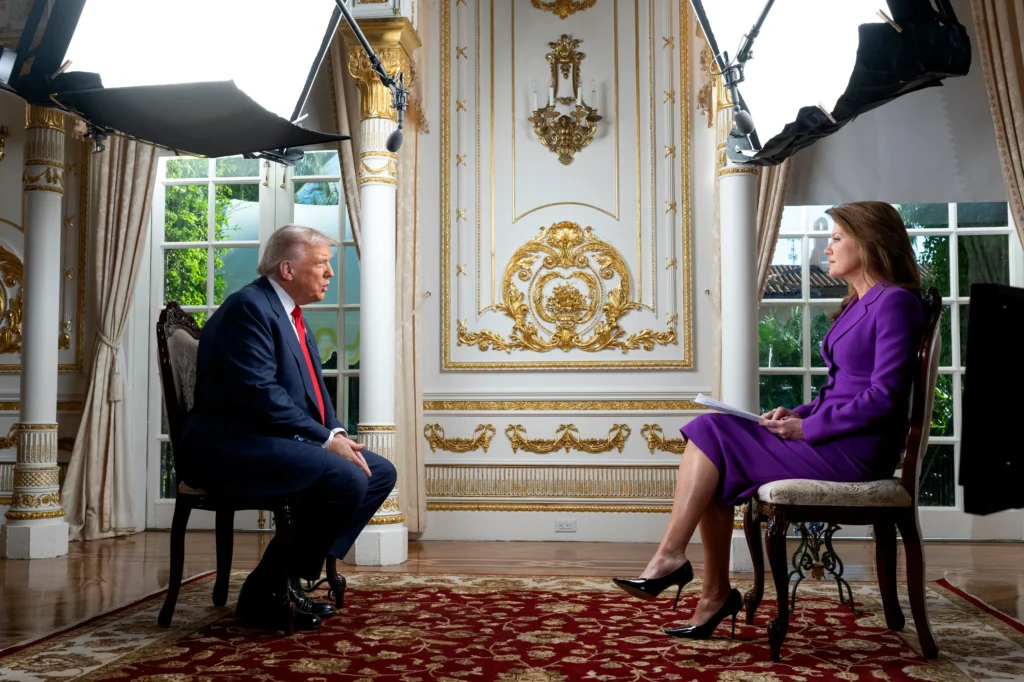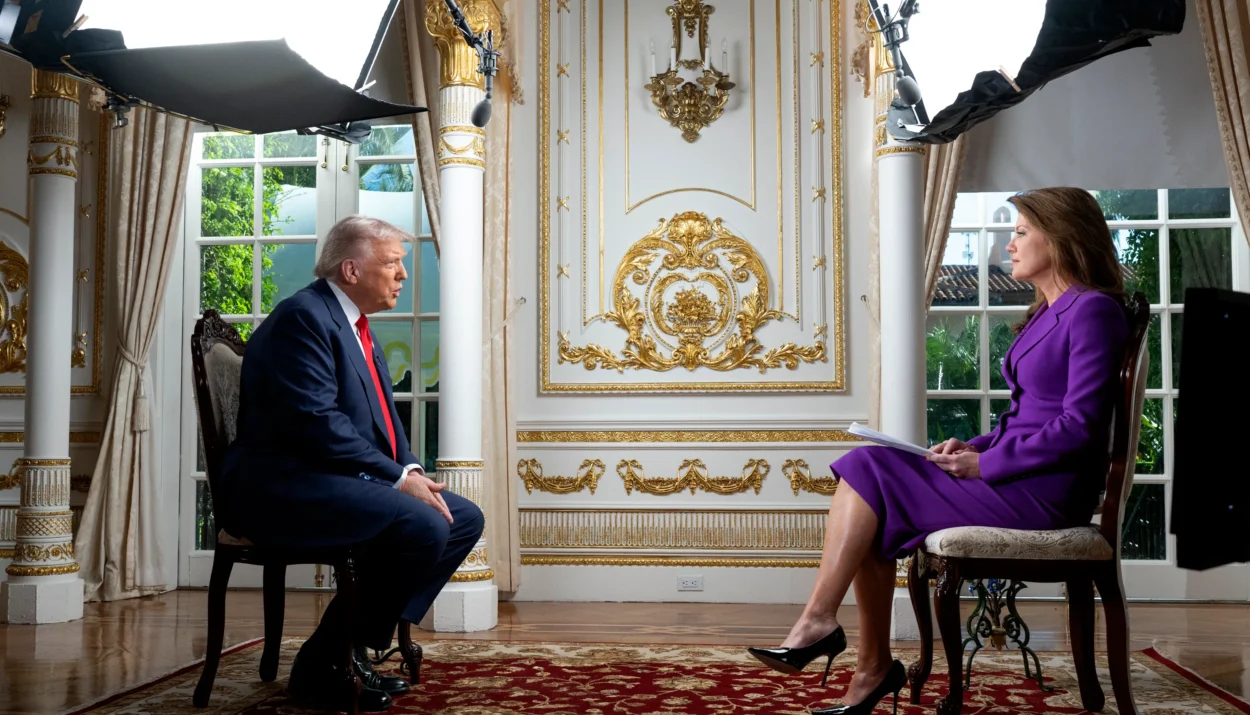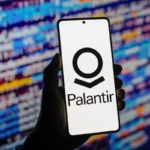Donald Trump’s first “60 Minutes” appearance in five years was anything but ordinary, blending policy, controversy, and personal score-settling in a 90-minute interview that reignited debates from Washington to Wall Street.
A Return to CBS After a $16 Million Settlement
The interview, filmed Friday at Trump’s Mar-a-Lago resort and aired Sunday night, marked his first “60 Minutes” appearance since 2020, when he famously stormed off set.
This time, Trump returned after winning a $16 million legal settlement from CBS’ parent company, Paramount, over alleged “deceptive editing” during the 2024 campaign. The settlement, made in July, was paid as a “donation” to Trump’s planned presidential library — a move that stirred criticism from journalist unions as a blow to press freedom.
CBS aired just 28 minutes of the 90-minute sit-down, with a 73-minute “extended version” released online. Yet, entire segments were still cut, including exchanges over Trump’s pardon of Binance founder Changpeng Zhao, and his remarks that CBS had “paid me a lotta money.”
“You don’t have to put this on, because I don’t want to embarrass you,” Trump told host Norah O’Donnell, referencing the settlement.
“60 Minutes paid me a lotta money … You can’t have fake news. You’ve gotta have legit news.”
The omissions led Democrats to call for an FCC probe, arguing CBS may have violated its own “news distortion” standards — an ironic twist given Trump’s own FCC once threatened similar probes against critical media.
China, Rare Earths, and the AI Chip War
Fresh from his South Korea summit with Chinese President Xi Jinping, Trump told CBS that his administration had “solved” the rare-earth metals issue — a claim Beijing has not confirmed.
“We got no rare-earth threat. That’s gone — completely gone,” Trump said, portraying himself as having neutralised China’s export dominance in critical materials for defense and tech manufacturing.
He described Xi as “a strong man, a very powerful leader,” but warned Beijing not to test US resolve on Taiwan:
“He knows what will happen if he does. I can’t give away my secrets. The other side knows.”
Trump reaffirmed his stance that Nvidia’s most advanced AI chips — the Blackwell line — will not be sold to China, calling the technology “too important for national security.”

Tariffs, the Supreme Court, and the Markets
Perhaps the most consequential moment came when Trump discussed this Wednesday’s Supreme Court hearing on his emergency tariff powers — a case that could determine whether his sweeping duties on global imports were legal.
“Because of tariffs, we have the highest stock market we’ve ever had,” Trump said.
“If we lose the case, our country could be reduced to almost Third World status.”
Economists say a ruling against Trump could jolt markets short term but wouldn’t end tariffs altogether. As analyst Morgan Carter put it, “A Trump loss might shake markets for a day, but the tariff era isn’t ending — it’s just finding new legal language.”
On the Government Shutdown and Democrats
Trump again blamed Democrats for the record-long government shutdown, now entering its sixth week. He accused them of “holding the country hostage” over healthcare spending and vowed not to negotiate until they “end the extortion.”
“They’ve lost their way,” Trump said. “I won’t be extorted by Democrats who want to give money to prisoners and drug dealers.”
Crypto, Binance, and an Omitted Question
The president’s most awkward exchange came when O’Donnell asked about his controversial pardon of Binance founder Changpeng Zhao, who had pleaded guilty to money laundering in 2023.
Trump said, “I don’t know who he is,” adding that advisors told him Zhao was the target of a “witch hunt.”
What CBS cut from the aired segment was O’Donnell’s follow-up:
“So not concerned about the appearance of corruption with this?”
Trump’s unsteady reply — “I can’t say … I’d rather not have you ask the question” — was missing from the broadcast, but appeared in the official transcript.
He concluded, “We are number one in crypto, and that’s all I care about. I don’t want China or anybody else to take it away.”
The omission reignited criticism over Trump’s family-linked crypto empire, World Liberty Financial, which launched a dollar-pegged stablecoin, USD1, on Binance’s blockchain earlier this year.
On Nuclear Tests, Hamas, and Venezuela
Trump defended his controversial decision to resume US nuclear testing after 33 years, claiming other nations — including China, Russia, and Pakistan — had already done so in secret.
“We’re the only country that doesn’t test,” he said. “I don’t want to be the only country that doesn’t test.”
He also touted a “solid” ceasefire deal in Gaza, insisting Hamas could be “taken out immediately if they don’t behave.”
On Venezuela, Trump denied a war plan but admitted, “Maduro’s days are numbered.”
Immigration and Law Enforcement
Trump defended his record ICE raids, calling them not harsh enough:
“No, they haven’t gone far enough. Liberal judges have held us back.”
He also promised to deploy the Army or Marines to “crime-ridden Democrat cities” if necessary.
Media, Power, and Praise for New CBS Owners
In an un-aired segment, Trump praised the Ellison family, whose company Skydance Media now controls CBS after its merger with Paramount.
“It’s the greatest thing that’s happened in a long time to a free and open press,” Trump said, calling editor-in-chief Bari Weiss a “great new leader.”
Market and Political Impact
Trump’s televised comments — from tariffs to China — come at a pivotal week for Wall Street.
Investors are closely watching whether the Supreme Court’s tariff ruling and ongoing AI export restrictions will rattle market sentiment. Analysts say most expect volatility mid-week, but no long-term reversal unless the Court directly strikes down emergency tariff authority.
Markets opened flat to slightly higher Monday, reflecting cautious optimism ahead of key corporate earnings (PLTR, AMD, and QCOM) and macro data releases delayed by the government shutdown.
Trump’s “60 Minutes” return was less an interview than a political spectacle — a mix of victory lap, grievance, and hardline messaging.
It underscored how he views tariffs, tech dominance, and media control as pillars of his presidency — and how both markets and voters will be left to judge the cost.
“If we win, we’ll be the richest, most secure country anywhere in the world — by far,” Trump said. “If we lose, pray to God that doesn’t happen.”










